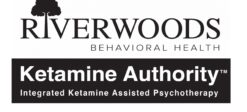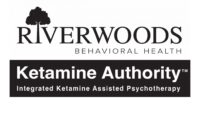
In our journey toward healing, ketamine therapy stands out like a lighthouse in the fog of traditional trauma treatments.
We've discovered that integrating strategies such as journaling for emotional clarity, mindfulness meditation, establishing a supportive community, and embracing integrative therapy techniques significantly enhances self-awareness and the healing process.
These methods not only complement ketamine's unique properties but also propel us toward a deeper understanding of our inner selves.
To grasp how these strategies can transform your path to recovery, let's explore their profound impact together, and uncover why they're crucial for anyone considering this innovative approach.
Understanding Ketamine's Role
To effectively harness its potential in trauma healing, we must first understand how ketamine functions. It's not just any medication; it's a powerful tool that, when used correctly, can open doors to parts of the mind that are usually locked away, especially for those of us dealing with deep-seated trauma. It acts on the brain's NMDA receptors, which play a crucial role in mood regulation and thought processes. This action can help to create a state where we're more open to psychotherapy and can confront our trauma in a safe and controlled environment.
We've found that ketamine's ability to induce a dissociative state is particularly valuable. This doesn't mean we're detached from reality but rather that we can observe our thoughts and feelings from a distance. It's like stepping out of the storm of our emotions and being able to see the sky above. This perspective shift is crucial for breaking through the barriers that trauma erects in our minds.
Moreover, while ketamine aids in this process, it's not a standalone solution. It's a catalyst that, when combined with professional guidance and therapeutic techniques, can significantly enhance our journey towards healing and self-awareness.
Journaling for Emotional Clarity
While exploring the benefits of ketamine in trauma healing, we shouldn't overlook the power of journaling for gaining emotional clarity. It's an incredibly simple yet profound tool that complements the therapeutic effects of ketamine, helping us process our experiences on a deeper level. As we navigate through trauma recovery, journaling becomes a safe space where we can express our thoughts and feelings without judgment.
We've found that writing down our emotions and experiences can significantly reduce the intensity of negative feelings, making them more manageable. It's as if putting pen to paper helps us organize our thoughts, providing a clearer picture of our internal world. This clarity is crucial in identifying patterns and triggers in our behavior, enabling us to address them more effectively.
Moreover, journaling encourages a habit of regular self-reflection. By dedicating time to write about our day, our feelings, and our reactions to certain events, we cultivate a practice of mindfulness towards our emotional state. This habit not only aids in trauma healing but also promotes a greater sense of self-awareness and emotional resilience.
In this journey, we've learned that combining ketamine therapy with journaling offers a powerful synergy for healing. It's a reminder that sometimes, the simplest tools can be the most effective in our path to recovery.
Mindfulness Meditation Practices
Incorporating mindfulness meditation practices into our routine can significantly enhance the journey of trauma healing alongside ketamine therapy. By focusing on our breath and present moment experiences, we ground ourselves, reducing the whirlwind of thoughts and emotions that trauma can trigger. This practice not only complements the therapeutic effects of ketamine by fostering a deeper sense of peace and self-awareness but also empowers us to navigate our healing process with greater ease and resilience.
We've found that starting with just a few minutes of mindfulness meditation daily can make a substantial difference. It's about creating a habit, a small oasis of calm, in our day. This intentional pause helps us observe our thoughts and feelings without judgment, fostering an environment where healing can flourish. As we become more adept at noticing our internal experiences, we're better equipped to address and process them, enhancing the therapeutic journey with ketamine.
Moreover, mindfulness meditation bolsters our ability to stay centered and focused, even outside our meditation sessions. This enhanced focus further supports our healing by allowing us to engage more fully in our lives and the therapeutic process, making our journey with ketamine therapy more effective and transformative.
Establishing a Support System
Building a strong support system is crucial as we navigate the complexities of trauma healing with ketamine therapy. This journey is deeply personal yet undeniably interconnected with the people around us. We've found that having loved ones who understand our process and are there to offer emotional support makes a significant difference. They don't need to have all the answers; their presence and willingness to listen are invaluable.
We also emphasize the importance of connecting with others who are on similar paths. Peer support groups provide a unique space where we can share our experiences, challenges, and successes. It's comforting to know we're not alone, and learning how others cope can offer new perspectives and strategies for our own journey.
Professional support can't be overlooked. Working with therapists and healthcare providers who specialize in ketamine therapy and trauma ensures that we're navigating this path safely and effectively. They offer guidance tailored to our specific needs and can help us integrate the insights gained from ketamine sessions into our daily lives.
In essence, we've learned that healing isn't a solitary endeavor. It's a collective journey that requires a network of support, each pillar offering its own form of strength and stability.
Integrative Therapy Techniques
We're exploring various integrative therapy techniques that complement ketamine therapy in the healing process from trauma. These approaches aim to enhance self-awareness and facilitate deeper healing. Cognitive Behavioral Therapy (CBT) is a cornerstone, helping us understand and change negative thought patterns. It's effective because it addresses the cognitive distortions that often accompany trauma.
Mindfulness practices, including meditation and yoga, are also integral. They ground us in the present moment, teaching us to observe our thoughts and feelings without judgment. This awareness is crucial in managing the emotional rollercoaster that can come with trauma and ketamine therapy.
We also incorporate somatic experiencing, a body-focused therapy that helps us release the physical tension that trauma stores in our bodies. It's a powerful way to reconnect with our bodies, often disassociated from during traumatic experiences.
Art and music therapy offer creative outlets for expression and processing emotions that might be too difficult to articulate in words. They tap into different parts of the brain, fostering healing from another angle.
Together, these integrative therapy techniques create a comprehensive approach to trauma healing. They ensure we're not just treating symptoms but are addressing the root causes of our pain, paving the way for lasting healing and growth.
Frequently Asked Questions
How Does One's Diet and Nutrition Affect the Efficacy of Ketamine in Trauma Healing?
We've been wondering how our diet and nutrition play a role in enhancing treatments we're undergoing. It turns out, what we eat can significantly impact how effective certain therapies are, including ketamine for those dealing with trauma.
Ensuring we're nourishing our bodies properly might boost the therapeutic effects, making the healing process smoother. It's all about finding the right balance to support our overall health and enhance the treatment's success.
Are There Any Specific Physical Exercises or Routines Recommended to Complement Ketamine Therapy for Trauma Recovery?
We're curious if there are specific exercises or routines that could enhance our journey through trauma recovery. It's not just about the mental aspects; integrating physical activity seems vital too.
From what we've gathered, incorporating gentle, mindfulness-based exercises like yoga or tai chi might offer significant benefits. They don't just improve our physical health but also help in grounding us mentally, making the therapeutic process more holistic and effective.
Can the Use of Technology, Like Apps or Virtual Reality, Enhance the Effects of Ketamine Therapy in the Process of Building Self-Awareness?
We're exploring if technology, such as apps or virtual reality, can boost the process of building self-awareness.
It's intriguing to think that these tools might enhance the effects of therapy, offering a more immersive experience or additional support outside of sessions.
We're curious about how integrating modern technology could potentially revolutionize therapeutic practices, making them more accessible and tailored to individual needs.
It's a promising avenue we're keen to investigate further.
What Role Does Sleep Play in Enhancing the Therapeutic Effects of Ketamine for Individuals Dealing With Trauma?
We've been exploring how sleep can amplify the therapeutic benefits for those tackling trauma. It turns out, getting enough rest plays a crucial role.
It not only helps the body recover but also enhances the mind's ability to process and integrate the experiences during therapy.
How Do Cultural and Social Factors Influence the Effectiveness of Ketamine Therapy in Trauma Healing Across Different Populations?
We've been exploring how cultural and social factors shape the effectiveness of therapies across different populations. It's clear that personal backgrounds and societal norms can significantly impact how individuals respond to various treatments.
In considering ketamine therapy for trauma healing, it's crucial to acknowledge and integrate these diverse influences to ensure the therapy is as effective as possible for everyone, regardless of their cultural or social context.
Conclusion
In wrapping up, we've discovered that integrating ketamine into our healing journey requires a multifaceted approach. By keeping a journal, we're able to track our emotional evolution, while mindfulness keeps us anchored in the present.
Having a strong support system is invaluable, offering us the encouragement we need. Lastly, combining various therapy techniques allows us to tailor our healing process.
Together, these strategies not only enhance ketamine's effectiveness but also empower us to reclaim our sense of self-awareness and progress on our path to recovery.

